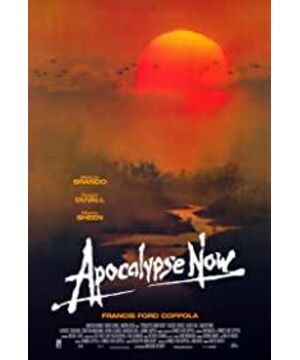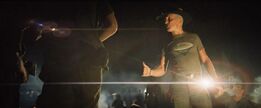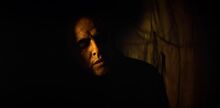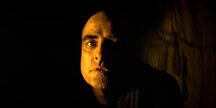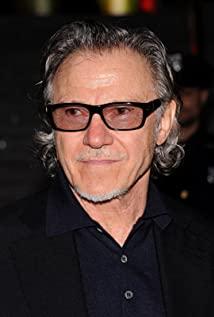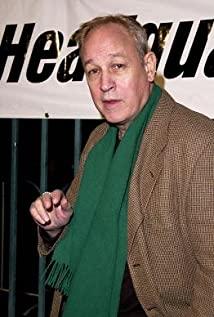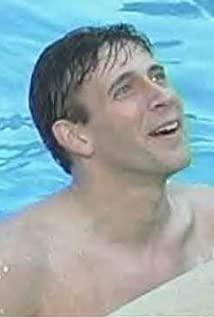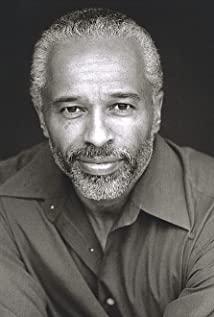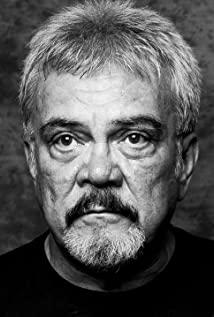The surfing colonel is a typical Nazi. When he played Wagner on the helicopter, he undoubtedly put himself in the position of a god-showing off his strong will to override everything. As Benjamin pointed out, this political aesthetic is clearly embodied in Nazi art. But when he used poetic language to describe the smell of napalm to reflect the power of creation, he whispered for a moment, and he uttered an extremely mediocre word: "victory." This moment of dumbfounded laughter revealed that he did not really create: a core of lies within the carefully portrayed divinity. He is Eichmann on the battlefield in Vietnam. Strong will is just blind killing for him; he has nothing except the values he accepted from his cowboy father, in other words, he is just a slave to a fake tiger. When Hamlet praised human beings for "how much like a god in action", perhaps unexpectedly, this is destined to be a mediocre god.
Kurtz is superior. He was truly alone, and with his own will, he created his own kingdom deep in the dense forest. He was able to abandon hypocritical modern morality and establish his own set of values. But the new "noble rule" not only failed to develop more perfect people, but instead presented a complete return of primitive wildness, and Kurtz also fell into the most complete madness. When he appeared in the dim flame, we really thought we saw a god; but then, the military watch on his wrist—a typical modern object—attracted our attention. In fact, all his madness is rooted in this indelible timing tool. The military table marks his past identity, his mission here, and his origin. This reminds us that his original purpose is the same as Colonel Surfing-namely "victory" (Colonel Surfing is also Kurtz's early form). And Kurtz’s madness is rooted in the observance of this purpose (the strong will to "victory") and the rejection (the moral rhetoric of "victory"). He still cares about his American identity and preserves the "time "Weekly, thus inevitably falling into schizophrenia. In addition, clocks and watches also mean a modern linear view of time, but the fact that history ends ("revelation") in ancestry rather than progress, undoubtedly constitutes an extreme irony to this Hegelianism that has been distorted by Nietzsche. In the final analysis, he, like Baudelaire's Western thoughts, is nothing but a resolutely "modern" rebel, so it is impossible to completely surpass modernity. Kurz cannot create a new morality, he is just denying the old one. He is a lion, but he cannot be a child-he is a fallen Bacchus.
For the protagonist Willard, the journey on the Mekong also means that he himself leads to the heart of darkness. In spirit, he is also on the way to Kurtz. The experience on the battlefield made him doubt about Christian morality, popular culture, and political operation, and the shot of Vietnamese women marked his denial of modernity. However, when he witnessed what Kurtz did and realized the inevitable fate of this negation, he chose to deny this negation, but the way he did it was exactly the same as Kurz's denial. At the end of the film, this negation ritual is emphasized. With the appearance of a primitive man, Willard used crude knives to release the dark instincts in his heart with the most savage chops. This is a thorough battle of mighty will, appearing as a battle between the leaders of primitive tribes. In the end, like a god, he holds a knife in his right hand, but does not hold up the precepts and scriptures in his left hand-a portfolio is replaced. No new laws were promulgated, but a return to the trajectory of slow destruction. He returned to the modern age with an ironic gesture, but this return itself created a new nightmare, which contained the seeds of madness internally.
Willard's experience may be a microcosm of the history of the 20th century. In this regard, "Apocalypse Now" and "Heart of Darkness" are not exactly the same, they represent the spirit of two centuries.
View more about Apocalypse Now reviews


